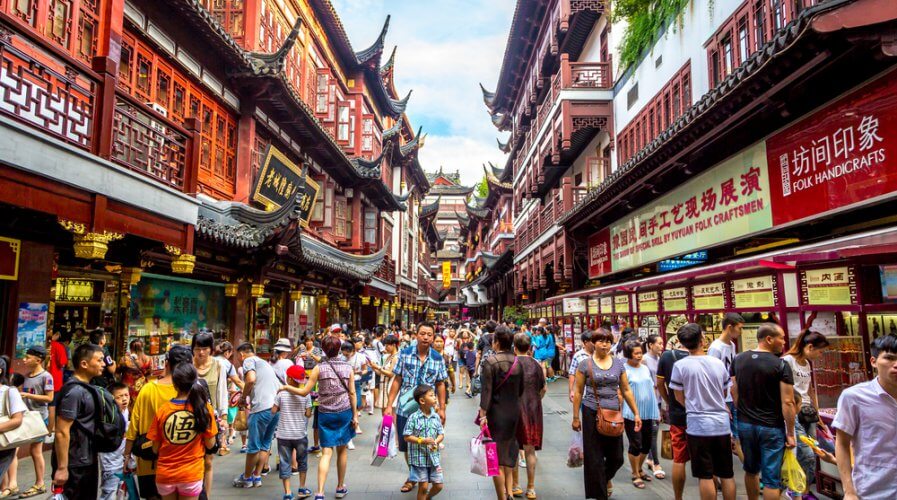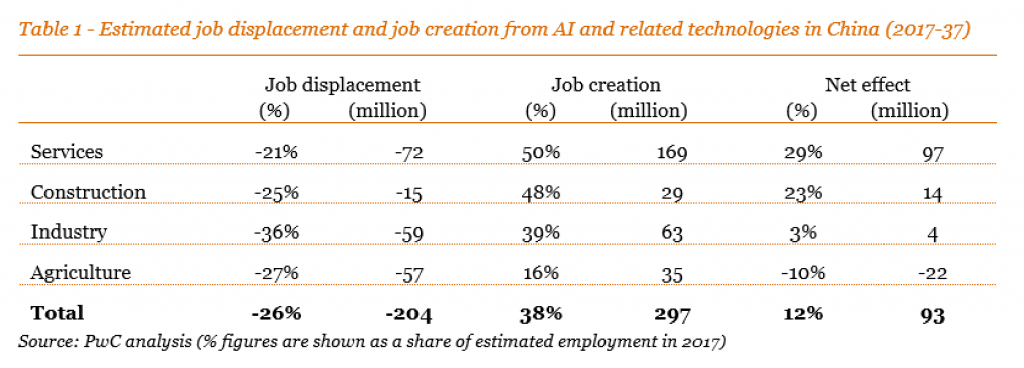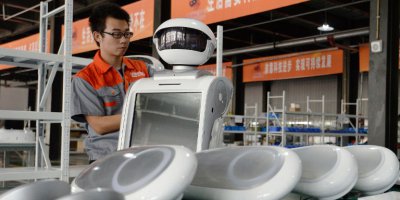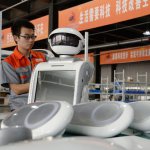
It seems like China is actually going to gain jobs as a result of AI. Source: Shutterstock.
Will technology create or destroy jobs in China?
TECHNOLOGIES such as artificial intelligence (AI), robotics, drones, and autonomous vehicles have the potential to destroy jobs.
In some parts of the world, such as the US and the UK, governments and regulators are concerned about the impact of such technologies on the economic machinery of the country and deliberating whether measures to slow down or halt their progress are needed.
In China, however, the story seems a little different. True, new technologies will disrupt existing jobs — maybe more than it will in other parts of the world — but they’ll also create more new jobs in the country.
According to a new PwC report, AI and related technologies could displace around 26 percent of existing jobs in China over the next two decades, but could also create significantly more additional jobs in China by boosting productivity and real income levels.
“Our central estimate is that the net impact could be a boost to employment in China of around 12 percent, equivalent to around 90 million additional jobs over the next two decades,” claimed the report.
The services sector is expected to gain the largest number of new jobs (169 million), followed by industry (63 million), agriculture (35 million) and construction (29 million).

When compared with the job displacement in the different industries, it seems as though the services industry benefits the most (29 percent) while the agriculture industry is the only one that loses jobs as a result of new technologies (-10 percent).
Overall, however, AI and related technologies could boost employment in China by around 12 percent over the next two decades.
While it all sounds optimistic for China, the extent of economic, legal and regulatory, and organizational constraints on the pace of automation, support provided to displaced workers looking for new careers, and how much of the productivity gains from AI are passed on to consumers by way of lower prices can change the fate of the country.
In order to make the most of new technologies, businesses and the government in China must make the right decisions — now.
Governments, for example, need to make sure they avoid hindering the progress that AI is making. The country intends to become a leader in AI by 2030 and is making significant investments to achieve that dream — including spending US$2.1 billion on a new AI industrial park.
In fact, some experts believe that the incentives and support that China provides to its local businesses focused on AI and related technologies is critical to its future.
READ MORE
- Ethical AI: The renewed importance of safeguarding data and customer privacy in Generative AI applications
- How Japan balances AI-driven opportunities with cybersecurity needs
- Deploying SASE: Benchmarking your approach
- Insurance everywhere all at once: the digital transformation of the APAC insurance industry
- Google parent Alphabet eyes HubSpot: A potential acquisition shaping the future of CRM




